Do you ever find that you’re feeling nervous or anxious about travel? If so, you could be experiencing travel anxiety.
Anxiety disorders are one of the most common mental health conditions, and around 19% of adults in the U.S. have an anxiety disorder. Travel anxiety is the name used when you have a feeling of fear about travel plans, and it can turn travel from a pleasant experience into something you dread.
The good news is that travel anxiety can often be managed by using some easy techniques.
I travel frequently for business and vacations with my husband, kids, or friends. I also experience travel anxiety, and over the years, I’ve learned some effective ways to deal with my anxiety around travel.
In this post, I’ll explain travel anxiety and share some simple tips for coping with it.
What Is Travel Anxiety?
Anxiety is the feeling of worry, tension, and raised blood pressure that your body develops in response to stressful situations. Travel anxiety is a specific type of anxiety triggered by travel.
A lot of travel anxiety occurs when you’re traveling to an unfamiliar place, but it can also be triggered by traveling to familiar locations.
Feeling anxious when you’re outside your comfort zone is normal, especially if you haven’t traveled much or for a long time. Visiting a new place, meeting new people, and trying new foods are exciting, but they can also cause sensory overload and overwhelm your system.
If you’re starting to feel uneasy about your trip and asking, “What if…?”, this is likely to be travel anxiety. However, your body releases adrenaline in response to both positive and negative experiences, so it’s easy to mistake excitement for anxiety.
What Are The Symptoms Of Travel Anxiety?
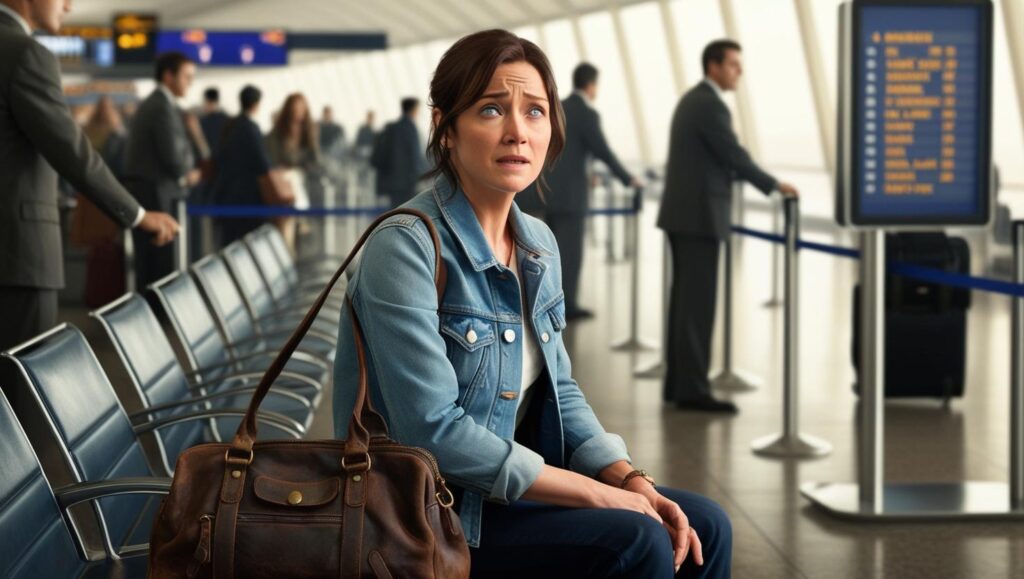
Travel anxiety can present in a wide range of symptoms for different people, which can include:
- Difficulty sleeping, especially in the days before your trip
- Loss of appetite or increased comfort eating
- Physical symptoms like headaches or stomach upsets
- Dizziness, shortness of breath, or shaking hands
- Anxious fidgeting, foot-tapping, or pacing around the room
- Lack of concentration
- Constantly checking travel details and repacking bags
- Emotional symptoms like short temper or asking for reassurance
- More extreme symptoms, such as panic attacks
However, this isn’t a complete list of common travel anxiety symptoms and your travel anxiety might look different.
What Are The Causes Of Travel Anxiety?
Some people experience travel anxiety their entire lives, and other people might start having anxious thoughts for the first time after a negative travel experience. There isn’t one single cause of travel anxiety, but these are some of the common causes:
Fear Of Flying
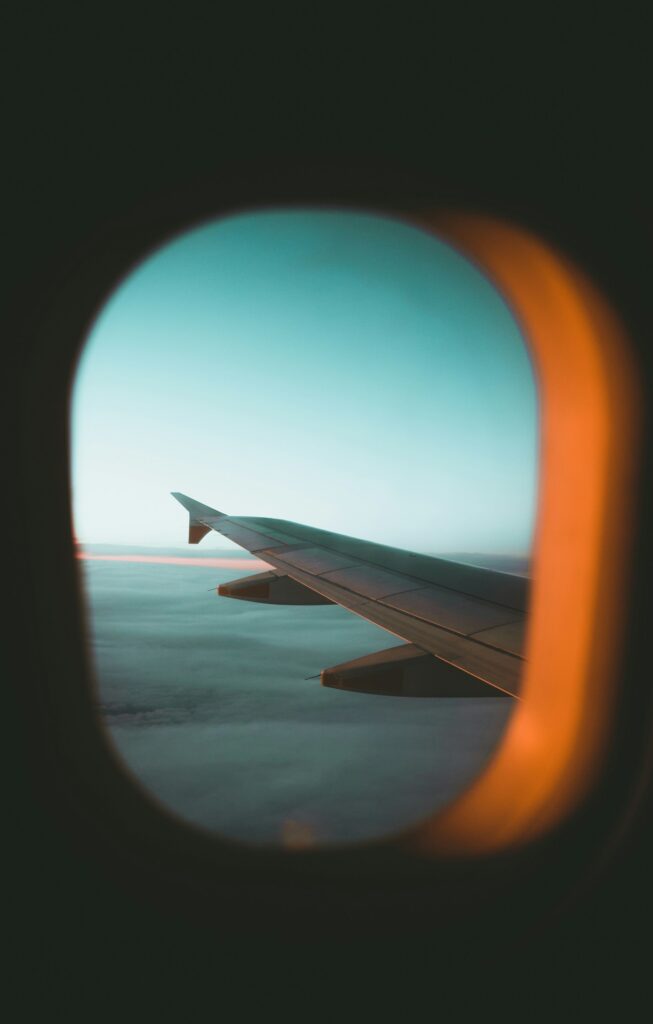
This is one of the most common causes of travel anxiety. The trigger might be the thought of flying so high above the ground, a fear of crashing, or a dislike of takeoff and landing. Others might feel claustrophobic inside the cabin or experience anxious moments during turbulence.
Fear Of The Unknown
Some people experience anxious feelings when away from familiar places, for example, if they don’t know how to get around their new environment or don’t speak the new language.
In severe cases, travel-related fears can become agoraphobia, the fear of being in places where you can’t get help.
Travel Horror Stories
You might feel anxious if you hear stories about crime, illness, or injuries during travel. Your brain might start to associate travel with negative experiences, which can trigger anxiety.
Anxiety triggers vary for every person, and you might find that it only affects certain types of travel. Perhaps you’re fine with domestic travel but become anxious when you think about flying to a foreign country, or you only get anxious when traveling for business but don’t experience vacation anxiety.
Once you have learned to recognize your travel anxiety symptoms and identified your specific anxiety triggers, it’s easier to work out the best way to manage your anxiety.
How to Manage Travel Anxiety
There are plenty of ways to manage travel anxiety, so I’ve picked out 10 simple travel anxiety tips to help you enjoy travel more.
Many of these deal with the practical aspects of travel that are within your control, and focusing on these goes a long way to help me feel more settled when I’m traveling.
I’ve also included some ideas for relaxation techniques that can help you feel calmer while traveling.
Identify Your Travel Anxiety Triggers
The first step is figuring out what causes your feelings of anxiety. For some people, the triggering event can be the stress of planning travel or worries about “what ifs,” while other common travel anxiety triggers are unfamiliar environments and new experiences.
Tiredness and low blood sugar can also trigger symptoms of anxiety, and you might find jet lag or motion sickness make your travel stress worse.
Once you understand what you’re worried about, you can ask yourself if your reaction is realistic. Is your worst-case scenario likely to happen, and can you do anything to help yourself feel more in control?
Prepare A Travel “Battle Plan”
Creating a battle plan can help you feel more in control, so you worry less about the “what if” you identified above.
However, don’t make your travel plans too rigid. Trying to fit too much into your trip can make it feel even more stressful, and you want a little flexibility to cover any unexpected changes. A good compromise is to decide on the most important sights and experiences and have a contingency plan for the other days. Remember to allow some downtime for relaxation!
I also try to avoid very short connection times in airports and keep a day or two clear on either side of my trip. This gives me a buffer in case of delays.
Some other things to consider include buying travel insurance for your upcoming trip and downloading maps or tickets so you don’t have to worry about bad mobile phone signal.
Choose A Travel Uniform
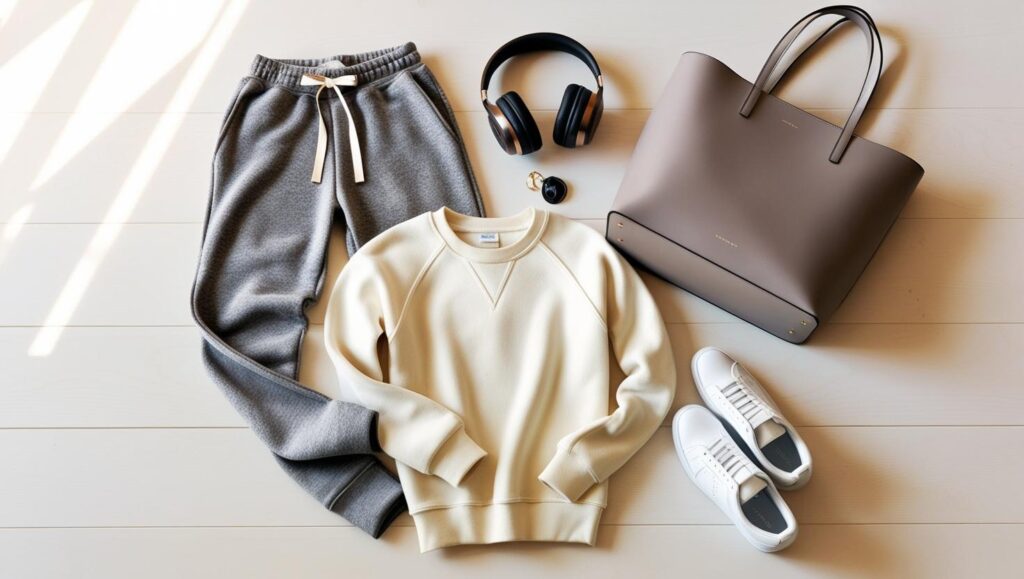
For me, flying is the main trigger event for my travel anxiety. I tend to get pretty bad air travel anxiety, especially when I’m in the airport. I feel anxious about the crowds of people and worried about whether our flights will be delayed or canceled.
I usually travel with my family, but sometimes meet my husband alone to join along with one of his work trips. On one such occasion, I arrived with plenty of time and even visited the airline lounge. Despite having plenty of time, I couldn’t relax…my heart was racing and I was constantly checking my phone, worried that my gate had changed or I had missed an announcement for boarding. I knew that these worries were unfounded but I also couldn’t stop them.
One thing I find really helpful to combat flight anxiety is having a “travel uniform.” This means I basically wear the same outfit for most long-distance flights, which helps ease my flight anxiety. For me, that is Athleta leggings, an Athleta bra top, a sweater of some kind, and my Paul Green sneakers. On long haul flights, I always wear medical-grade compression socks because of a blood clotting condition. I recommend these to everyone, even if you don’t have a medical condition, because they really do keep your legs and feet energized and feeling good when you land. Bombas makes a great compression sock if you don’t need a medical version.
I’ve picked out clothes for my uniform that I know fit well, look good, and are comfortable for long flights. This means one less thing to worry about when I’m planning a trip and on the flight itself. It’s also a little ritual in itself and makes me feel more calm and in control in a chaotic airport.
Organize Your Travel Bag
My next tip is to organize your travel bag, purse, backpack, or whatever else you’re carrying.
Fear of losing your passport or other essential documents is a common travel stress. Organizing your bag in the same way each time you travel helps reduce this fear because each important item has its own specific place. Of course, the most important part of this is making sure that you put each item back in its place when you take it out!
For example, I always put my passport in a specific pocket each time I travel. I also make sure it goes straight back in there every time I take it out to show it to passport control or whoever else. That way, I always know where everything is, and I can easily and quickly verify it if the travel anxiety gets the better of me and I need to quadruple-check that I have everything.
Pack Travel Essentials
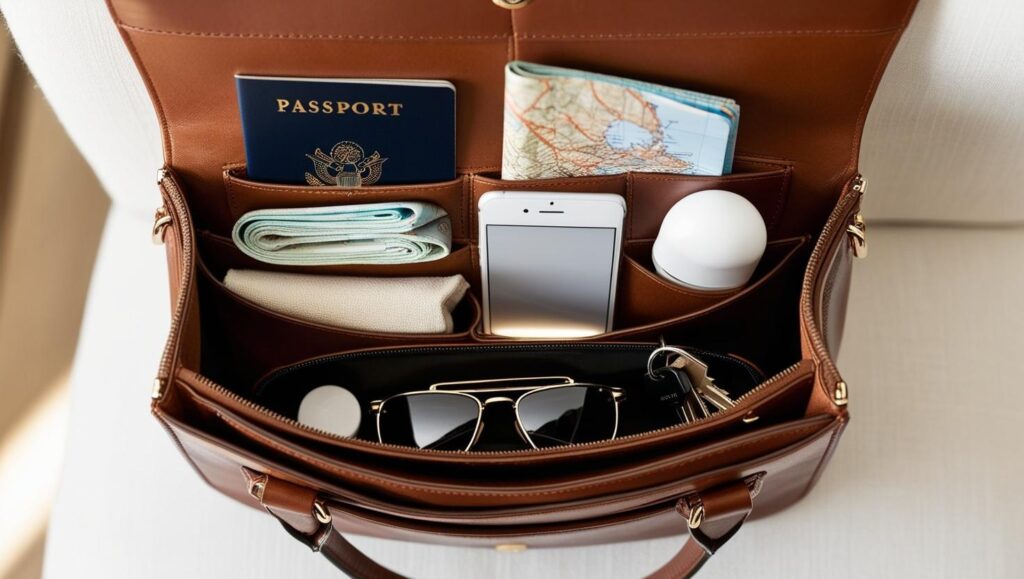
If your carry-on or personal bag has enough room, I also recommend packing your medications and a few personal items, like a toothbrush and a change of underwear. This gives you the confidence that you can manage if you get temporarily separated from your luggage.
And I always include some favorite distractions, like some great music and podcasts downloaded to my phone or a good book I’m reading. Maybe there’s a movie you’ve been waiting to see or a guilty pleasure TV show you don’t often make time for. Personally, I love to work on planes. There is something about the lack of connectivity that allows me to zone in, and I do some of my best and most productive work while flying.
Having something to look forward to on the plane keeps my mind off the aspects of travel that stress me out, so I do make sure to have some audiobooks and mindless shows at the ready for when I need a break from work.
Use Travel Apps
I’m always nervous about missing my flight because the gate gets changed without me noticing or a delayed flight gets moved back up.
To help manage this trigger, it’s worth downloading your airline’s app to your phone as this will give you real-time updates on your flight.
You can also sign up for mobile apps like FlightAware or Flighty. These give you updates on flights for different airlines and information like when check-in opens and which belt to use at baggage claim. In fact, Flightly recently alerted my husband to a plane change while he was sitting waiting to board, which gave him time to connect with the airline about rebooking before they officially announced a maintenance issue that would cause several hours of delays.
Having all the information on my phone means I can relax without having to walk over to the information screens every few minutes!
Research Emergency Contacts
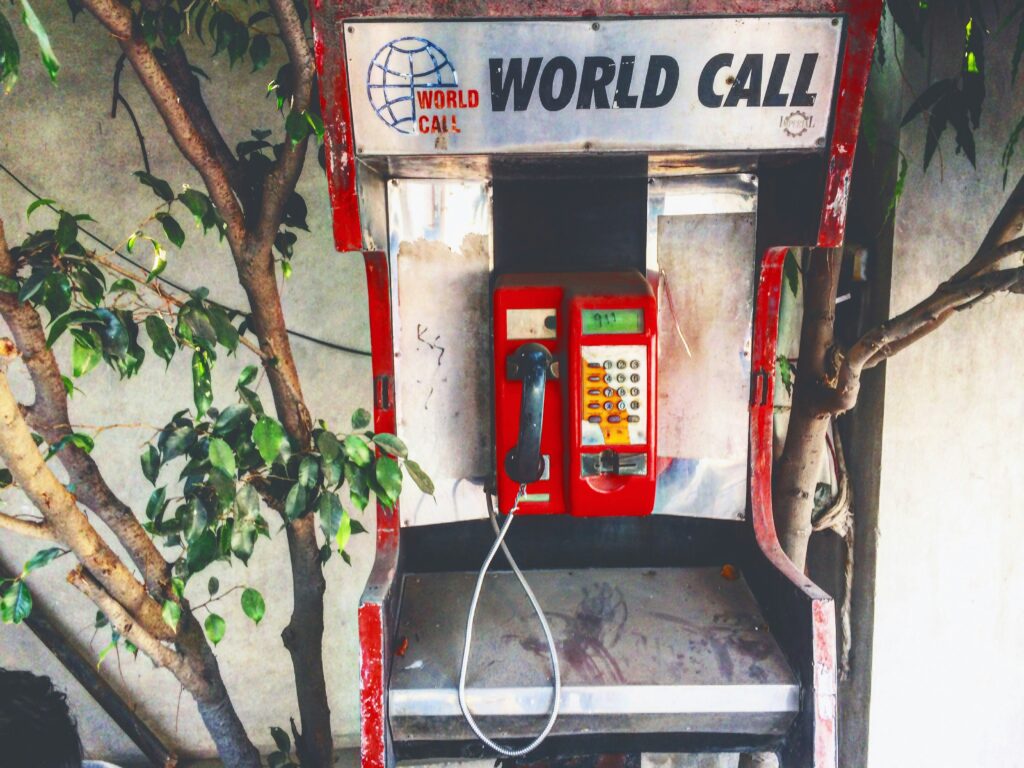
People with travel anxiety tend to catastrophize and imagine the worst-case scenario. I find that a bit of preparation before my trip helps me avoid thinking about all the things that can go wrong.
So I always check the emergency phone number for the country I’m visiting, and research local medical facilities in case anyone needs medical attention. I add this information to my phone, but you could also print out a copy to keep handy in case you misplace your phone.
If worrying about things back at home triggers your travel anxiety, create a checklist to work through before your trip. You might want to include things like planning care for your pets or asking a family member or trusted friend to collect the mail during your trip.
It’s also a good idea to give a spare key to an emergency contact who can pop around and check on things for you.
For our family, traveling with allergy translation cards is also a non-negotiable. If you also travel with food allergies, check out my guide on staying safe on the road with food allergies to help minimize the worries that come along with life-threatening medical conditions.
Travel With Safety Equipment
I also like to travel with a portable carbon monoxide detector to reduce my travel anxiety levels from a general health and safety perspective. These will detect carbon monoxide, a deadly odorless gas that can be emitted by faulty heaters in hotels or guest houses.
These portable detectors are small enough to fit in your carry-on. You can get battery-powered models or ones that fit into a regular plug, but remember to pack a travel adaptor if you’re traveling outside the U.S. if you get a plug-in detector.
Other useful safety equipment includes an additional lock and door stop to prevent unauthorized entry into your hotel room and a lightweight, portable safe to store your valuables and travel documents securely.
Consider Previous Travel Experiences
Think back to your past experiences of travel. Did any of the things you’re worrying about happen, and if so, how did you cope with them?
Chances are, you managed your negative travel experiences successfully, which shows you have the resilience to deal with any problems on your upcoming trip.
For example, I once got stuck in London while traveling back from Greece. At the time, I was very anxious about the delay, mainly because my kids were back home with my parents.
However, I’d made a backup plan before my trip so my parents were able to stay over an extra night or two with my kids. I also had a friend on standby in case my parents weren’t available. Though I was in tears in the airport, the kids were absolutely fine, because I had planned ahead.
There’s also a good chance that most of your trips have passed without major problems. Reminding yourself about successful trips can help replace your negative thoughts and reassure you that your next trip can run smoothly, too.
Practice Relaxation Techniques
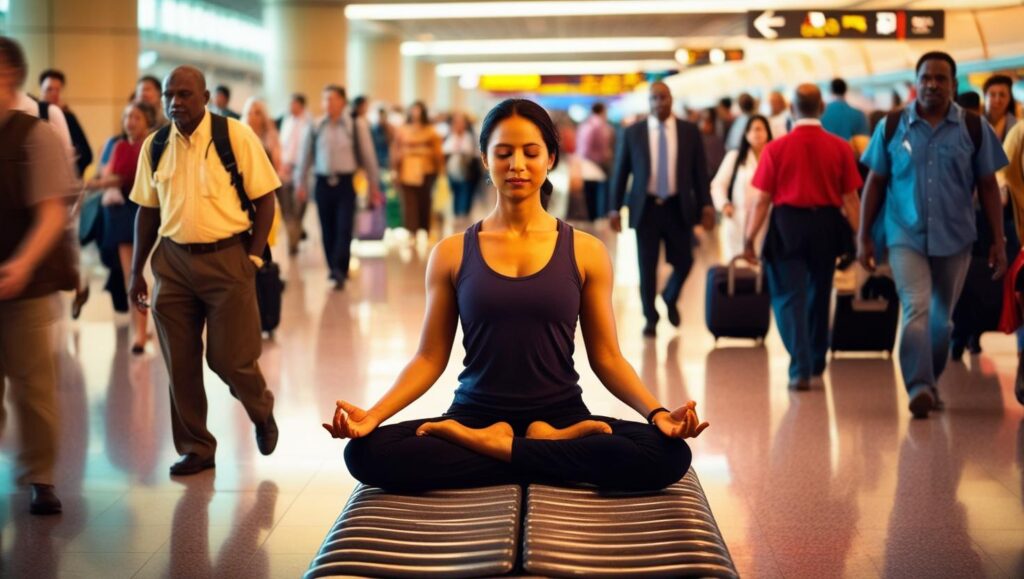
Using relaxation techniques before and during your trip can be an effective way to manage your anxiety. Here are a few different ways to help yourself relax.
Mindfulness practice helps you stay in the moment and not think ahead to what might happen in the future. Progressive muscle relaxation and deep breathing techniques like diaphragmatic breathing, box breathing, or elevator breathing are also good ways to relax during the flight.
If you start to feel anxious during your trip, you can find a quiet place and practice a deep breathing exercise to calm yourself down. You do need to practice these techniques in advance, though, so give yourself time to learn them before your next trip. Even little things, like dropping your shoulders, can instantly and meaningfully reduce the tension in your body.
Supplements like vitamin D, magnesium, or Bach Rescue Remedy can also help promote greater relaxation and feelings of calm. However, it’s always essential to talk to your doctor before starting a new supplement routine.
What To Do When Things Go Wrong
Even if you plan well, things can happen outside our control: flights get delayed or canceled, the hotel room isn’t what you expected, or you’re running late for your restaurant reservation.
Travel anxiety can make you think that your whole trip is ruined, but the most important thing is to try to slow down and take things step-by-step.
Stay calm, take some deep breaths, and contact someone who can help. If you’re running late, contact the restaurant or the people you’re meeting. If your flight is delayed, speak to a customer service agent and find out when you’re likely to take off.
Soon, your trip will be back on track!
When To Seek Help For Travel Anxiety
Travel should be a fun and relaxing activity, not a source of stress. If you’ve tried some of these solutions without success, it’s worth consulting professional help.
Mental health professionals can recommend effective methods to deal with your anxiety, and they may also prescribe medications or offer treatment plans such as behavioral therapy. These can take time to have their full effect, so leave enough time to schedule professional support before your next trip.
The Wrap-Up: How to Handle Travel Anxiety
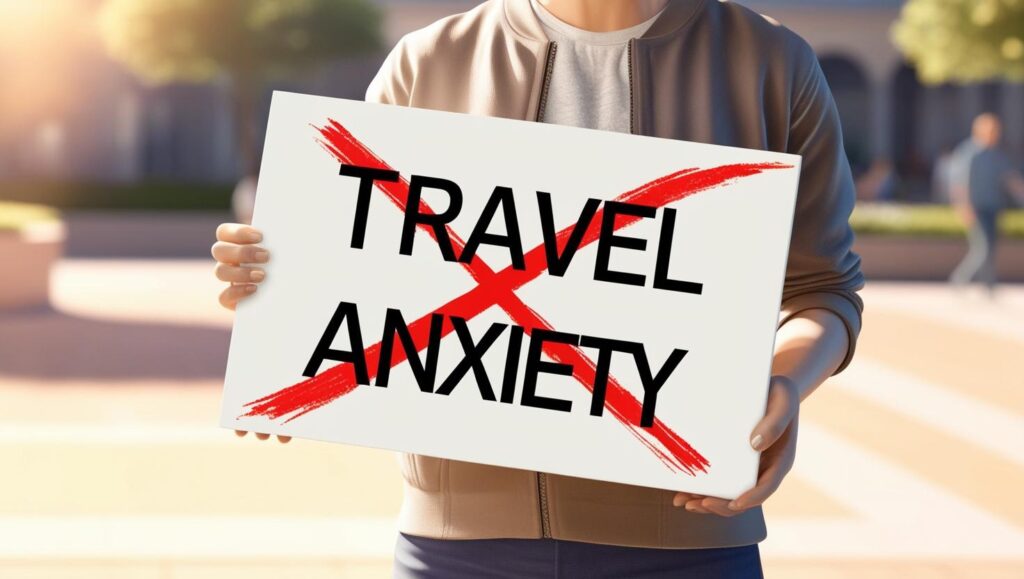
The more often you travel, the more likely you are to become accustomed to it. Before long, some aspects of travel will feel routine, like packing your bags or going through security checks.
This will give you more confidence in your ability to deal with any problems that crop up along the way.
The simple tips above will help reduce the likelihood that you’ll feel anxious during your travels and deal with any travel anxiety symptoms you experience. However, if your symptoms don’t improve, it’s worth talking to a medical professional about treatments to help you overcome your travel-related anxiety.
Hopefully, you’ll soon feel less anxious and be able to enjoy your next travel experience more.


